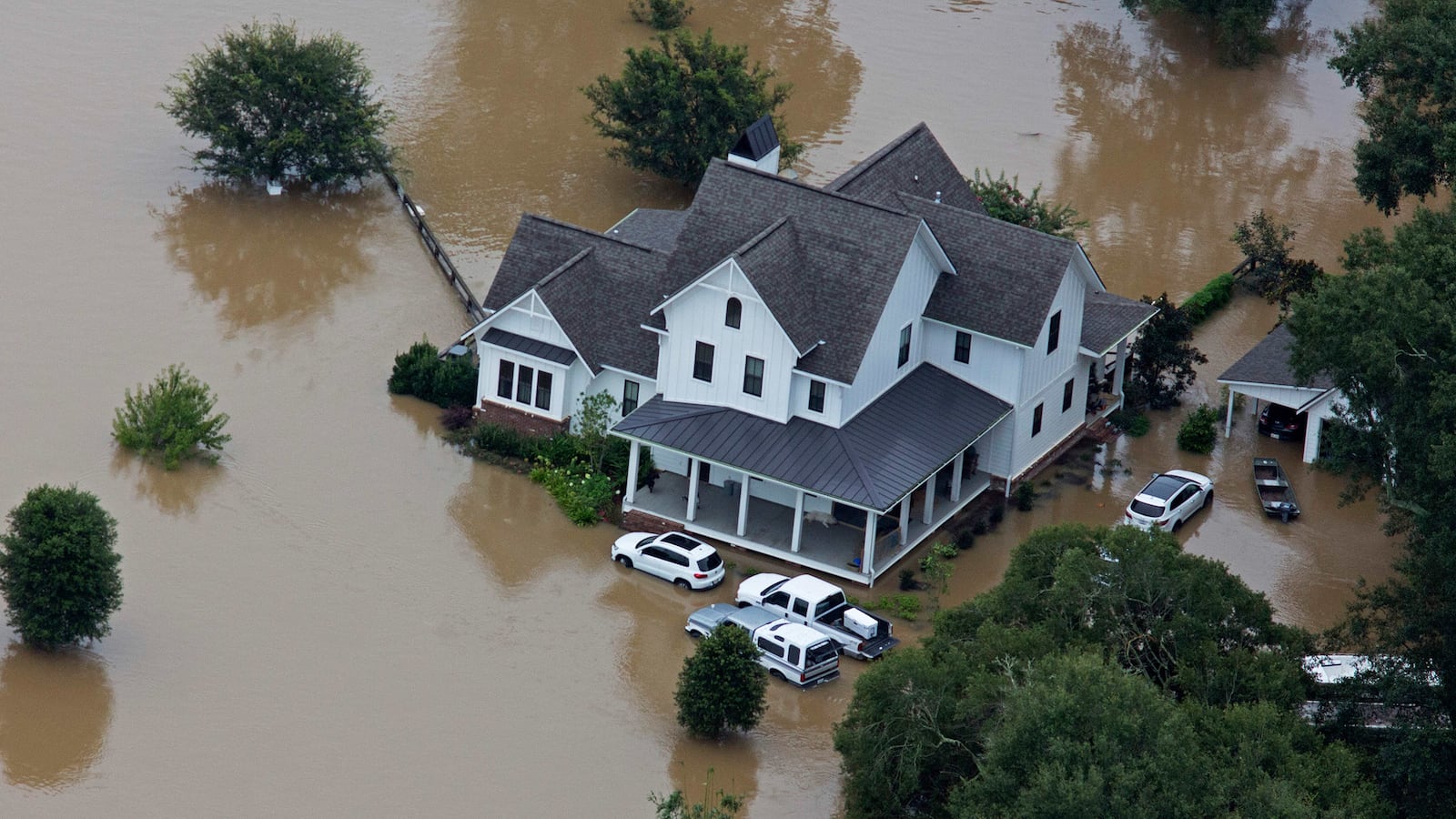Days after a severe flood in Louisiana that left six people dead and 10,000 in shelters, some experts are expressing concern that the event may usher in a large Zika outbreak.
The fears are not entirely unfounded. When the water currently rushing through the streets of Baton Rouge recedes, it will leave behind pools of standing water—a perfect place for Aedes aegypti mosquitoes to breed. But for those mosquitos to spread Zika, they have to be carrying the virus itself, and in Louisiana—by all current accounts—they aren’t.
This week the Louisiana Department of Health reported four new cases of the disease in their state, bringing the total number of those affected there to 23. All acquired it while traveling to an affected country in the Americas, like nearly everyone else who has tested positive for the virus here.
As of Aug. 10, the Centers for Disease Control and Prevention (CDC) has reported 1,962 total cases of Zika across 47 states, just six of which have been locally transmitted. For most, the infection is negligible, causing a rash and flu-like symptoms that generally disappear within a week. For others, especially pregnant women, it can be life-altering.
The U.S. has already seen these effects firsthand. At least a dozen babies with microcephaly, a severe birth defect characterized by an underdeveloped head, have been born to mothers infected with Zika in New York, New Jersey, Florida, Texas, Hawaii, and California. Six people have been diagnosed with another illness connected with the disease: Guillain Barre Syndrome, a rare nerve condition that can cause paralysis.
For these reasons, taking a cautious look at the risks a tragic flood may pose is crucial. But suggesting that the water left behind in Baton Rouge will be teeming with mosquitoes ready to infect the whole city is misguided. The only place in the U.S. where mosquitoes are known to be carrying Zika is Wynwood, Florida—a Miami suburb roughly 900 miles away.
Dr. Carl Roepe, co-director of Georgetown’s Center for Infectious Disease, has been meticulously tracking the virus with his colleagues. At this point, he isn’t worried about Louisiana. “The very heavy rains in LA will likely lead to increased numbers of mosquitos within the state, however, currently there is no transmission of Zika within LA,” Roepe told The Daily Beast. “It is unlikely then that the rains will, over the short term, lead to spread of Zika within LA.”
Roepe stressed that while there may not be an immediate threat, if the population of mosquitoes remains high, the risk of introduction in the region could go up. Still, with a mosquito’s life span just one to three weeks, conditions for increased breeding would need to remain for a long period of time—which, hopefully, they will not.
While the disease can spread from human to mosquito, the current mosquitoes in Louisiana will have been washed out by the flood. Some unhatched eggs may remain, but wouldn’t be subject to the virus. If the state can keep the number of travelers coming in with Zika under control, then the chances of it erupting into a major outbreak are low. According to Dr. Frank Welch, medical director for the Louisiana Department of Health’s Bureau of Community Preparedness, it’s already underway.
“Our surveillance activities include working with hospitals and other health care providers who notify us if and when a possible Zika case is diagnosed,” Welch said in a statement last week. “We also work with mosquito control agencies throughout the state who conduct mosquito testing in areas of known human cases to determine if mosquitos in those areas are carrying the virus.”
In the World Health Organization’s technical guidelines for health workers, it notes that flooding can increase the risk of mosquito-borne illness, due to the “expansion in the number and range of vector habitats.” But the instances it identifies, such as the spread of West Nile Fever in Europe or malaria in Costa Rica, all involve places where the disease was already spreading. The floods, in turn, caused a “resurgence” of the infections, not an introduction.
Neither WHO nor the CDC have issued statements regarding Louisiana’s Zika threat yet, but have continued to stress the importance of travelers staying safe and exercising caution through things like bug spray and condoms.
Ben Beard, Chief of the Bacterial Diseases Branch of CDC's Division of Vector-Borne Diseases, told USA Today that while the organization plans to keep a close watch on the number of mosquitos, it isn’t bracing for an explosion of cases. “I wouldn’t say right off that there’s reason to believe that [the flooding] would have significant impact,” he said.
Peter Hotez, an expert in epidemiology from the National School of Tropical Medicine at Baylor College of Medicine in Houston, suggested that it is a problem in an interview with USA Today. “We could be seeing an increased number of Aedes aegypti now in the coming weeks,” he told them, calling the next few weeks “crunch time.”
Nearly 2,000 cases of any disease sounds ominous, especially one that can cause debilitating long-term effects. And with the outbreak spanning 68 countries worldwide, calls for Congress to issue funds for relief and preparation are absolutely vital. But the distinction that most people are missing with Louisiana—that not a single case has been transmitted locally—is crucial, and suggests that continued caution is preferable to panic.






